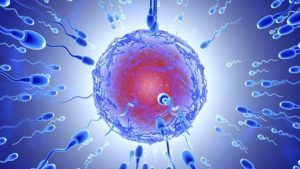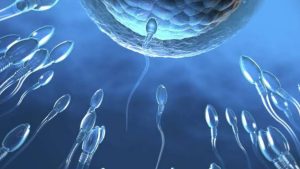Differences Between a Zygote and Foetus: While procreation is a universal occurrence among plants and animals including higher animals like humans, the process of procreation and growth is a delicate and interesting process but not devoid of biological mysteries. Ever wondered how organisms that reproduce manage to do so and how the process all begun? It is a process that beats the eyes. We are about to consider the terms, Zygote and fetus, which are both related to reproduction or procreation of offspring.
The word Zygote is used to refer to a eukaryotic cell that is formed by means of fertilization as a result of the coming together of two gametes. This means that, it relates to the early stage of reproduction or development in multicellular organisms.

In humans, a zygote is formed at the point when the female egg cell meets the male sperm cell and creates a new organism. It is a bit different when it has to do with single-celled organisms because, there could be a division of the Zygote asexually through the process of mitosis and then producing an identical offspring.
This process is unique and peculiar based on individual species. It is quite interesting and less complicated when referring to humans. In human fertilization, an ovum which is a haploid secondary oocyte with replicate chromosome copies and a sperm cell or the male gamete fuse to form a single 2n diploid cell referred to as the zygote.
The word Fetus on the other hand is the unborn offspring of an animal that is still in it developmental stage, it develops from the animal embryo. This is to say that it is a much advanced stage of development when compared to a zygote.

The Fetus starts development at the ninth or eleventh week in humans unlike in the case of Zygote where the mitosis takes place soon after the female egg cell meets the male sperm cell. The Fetus stage begins after fertilization up until the actual birth of the offspring.
The Fetus ensures that the offspring is delivered in a developed form. It is quite pertinent to understand and appreciate the fact that the zygote which is the earliest stage of formation shares some level of features with the fetus because, it is the zygote that further develops over time to form the fetus, the main disparity between the two stages is that they share a significant time difference and the kind of features developed by the new organism at the two stages are significantly different too. That notwithstanding, the zygote stage already contains the DNA and chromosomes.
The DNA which means Deoxyribonucleic Acid and is a polymer made up of two polynucleotide chains which usually coil around each other in other to form a double helix that carry genetic instructions responsible for the development, functioning, growth and reproduction of all organisms as well as many viruses. The Chromosomes on the other hand are long DNA molecule consisting of a part or all the parts of the genetic material of an organism.
In this article, we will look at the major differences that distinguishes a zygote from a Fetus even though they share a common line of developmental progression in living organisms. It is important to draw the line between the two stages in other to have a clear picture of where one stage starts and where it ultimately ends and forms the beginning of another important stage in the sequence of development.
Recommended: How To Become a Better/Best Version of Yourself: 12 Tips
Main Differences Between a Zygote and Foetus
1. While the Zygote stage can be recorded in both plants and animals, the Fetus is a stage peculiar to mammals, viviparous, onychopora and arthropods. This means that, even though plant and animal shares a common phenomenon at the beginning, they do not share the entire process of development and birth.

It is obvious that plants don’t I’ve birth to offspring like most animals do so, that says a lot about the termination of the sequence of development a plant shares with animals at the zygote stage.
2. While it is evident that the zygote is formed at a much earlier stage, it is only associated with the fusion of the male and female gametes in which case it can be well said that it is associated with fertilization.

The fertilization process and stage gives rise to further division of the Zygote in other to create new organisms which may be identical twin or more. On the other hand, Fetus considerably shows the real and more advanced stage of development.
Recommended: How To Become a Better/Best Version of Yourself: 12 Tips
3. The zygote stage is quite short as it runs between the time of pollination and the time there was a fusion of the gametes when referring to plants. It equally applies to animals but the effect of the division and the result that occurs afterwards in the zygote stage clearly differentiate the plant developmental stage from that of animals whereas, the duration of the Fetus is quite a process and relatively longer.

It begins shortly after fertilization and spans through the actual growth of the offspring up until the time of delivery.
4. The zygote usually has a unicellular structure which means that it has just a single cell structure and is completely different from fetus that has a multicellular structure and that is having more than one cell structure.
Also see: How To Multitask Effectively: 10 Tips
5. While the Zygote has the ability to divide and form an identical organisms which may be two or more, once the fetus is formed follow the development and progressive growth of the embryo,

the Fetus no longer divides but rather, it continues to grow progressively and develop until the time of birth.
6. The zygote stage clearly lacks the visibility of a well-defined body parts which avails the physical properties of the new organism.

In animals, the case is different and this is because when the development gets to the fetus stage, there is usually a clear visibility of body parts to show off some, if not all, the physical properties of the new organism.
See also: Importance/Uses of Farm Animals
7. A fetus has the ability and tendencies to react to the environment and certainly occurrences and effects such as sound, lights, vibration and others.

This is a clear evidence and proof that the organism has achieved and advanced level of development and has consequently acquired body parts and senses that are susceptible to waves and other things. This is completely different and absent in the zygote stage where the organism is merely a cell and almost dormant. At the zygote stage, nothing is felt and no form of reaction is experienced or expressed by the zygote.
8. A Fetus can achieve some level of movement in the womb which is a clear manifestation of its newly acquired body parts and senses such as the head, hands and legs as opposed to a zygote that has none of these parts.
Recommended: Defences To Strict Liability: 5 Defences A Defendant Can Plea
9. When a zygote is formed, it further divides, that is an occurrence that doesn’t relate to fetus
10. In a nutshell, the zygote can be attributed to formation while Fetus is attributed to growth and development of the offspring.
Also see: How To Pass Exam Without Reading: 7 Effective Tips
Summarily, the line between a zygote and a fetus is somewhat obvious and detectable. There are no doubts as to whether the stages are a common progressive sequence, however, at each stage, some level of development and distinct features tend to exist and more so, these development features and tend to vary a great deal from each of the stages.

Edeh Samuel Chukwuemeka, ACMC, is a lawyer and a certified mediator/conciliator in Nigeria. He is also a developer with knowledge in various programming languages. Samuel is determined to leverage his skills in technology, SEO, and legal practice to revolutionize the legal profession worldwide by creating web and mobile applications that simplify legal research. Sam is also passionate about educating and providing valuable information to people.